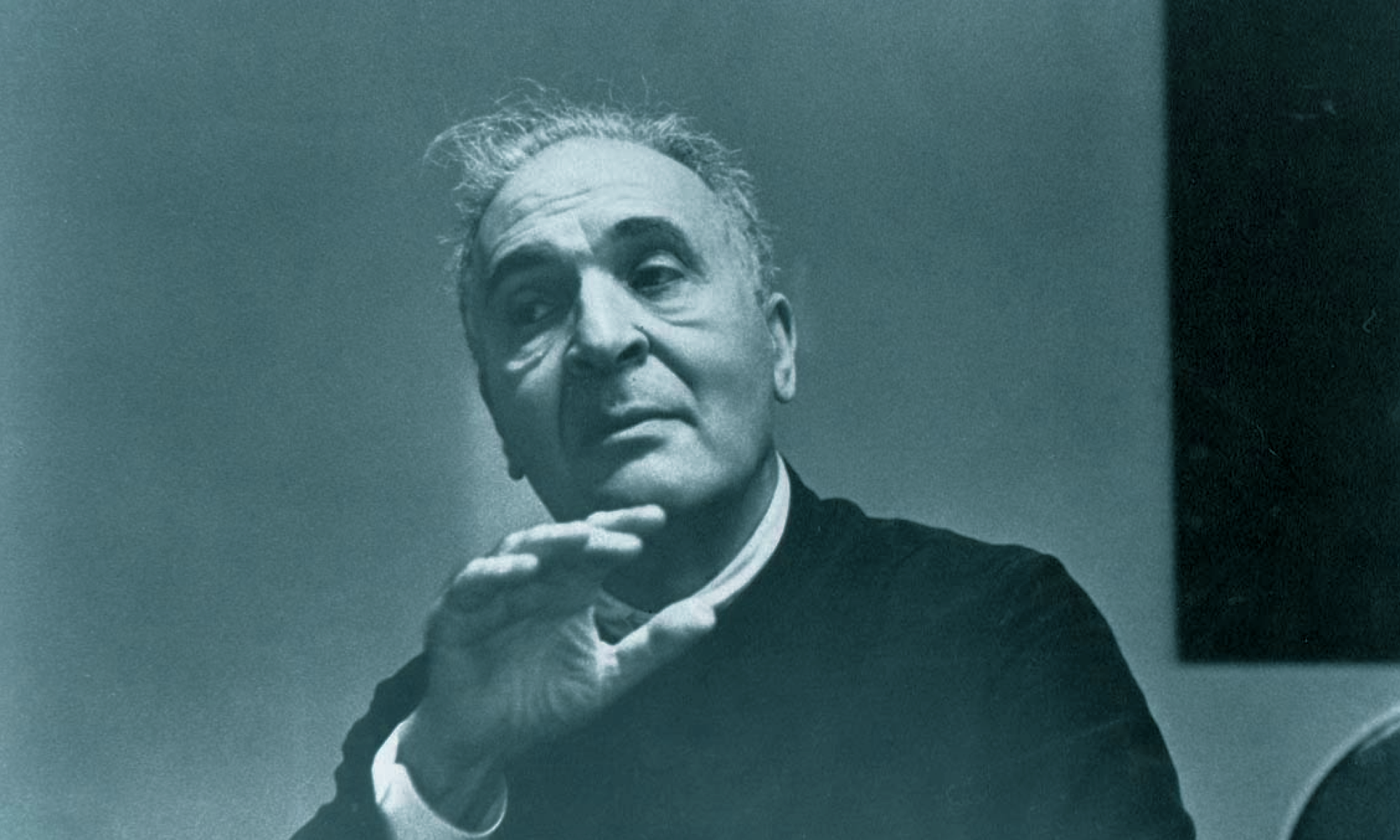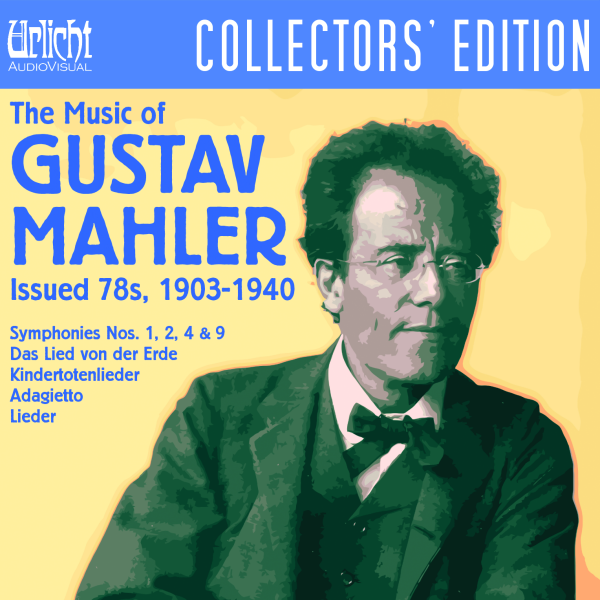By arrangement with Urlicht AudioVisual, we are pleased to be the exclusive source for the lossless digital edition of “one of the most important Mahler issues in recent decades.”
“Many Mahler enthusiasts and specialists will doubtless possess a number of the recordings in this boxed set from earlier transfers on different labels, and so it may appear that the acquisition of this release will seem like unnecessary duplication. Nonetheless, I strongly urge them to investigate the contents as there may well be important first recordings of Mahler’s music which they do not have, and the quality of the transfers is in many ways easily the best in terms of releasing from those old 78rpm grooves more musical detail and the removal of a great deal of the inherent surface noise. In addition, the booklet accompanying this release is particularly informative, going way beyond the normal notes in imparting important information regarding the performance of Mahler’s music in the inter-war period particularly, information which is not readily available elsewhere. This collection of every known commercially issued Mahler recording from 1903-40 is one of the most important Mahler issues in recent decades and is very strongly recommended indeed.”
— Robert Matthew-Walker, International Record Review, Dec. 2013
“Epic Mahler Box-set… Excellent transfers and exhaustive notes complete a valuable issue.”
— Rob Cowan, Gramophone, January 2014
“[Ward] Marston has been at work [transferring Oskar Fried’s acoustic recording of Mahler’s Symphony No. 2] again, and he has produced a notably clearer and fuller sound than before. …
“I have compared the [Bruno Walter] transfers with those on EMI/Warner’s recent Walter collection (6 79026-2)… the new Symphony No. 9 has a little more warmth and presence. …
“There is also a Das Lied potpourri and an arrangement of a Wunderhorn song played by the Dol Dauber Salonorchester. Both are strangely convincing. One disc that needs to be mentioned is of the “Urlicht” from the Second Symphony, coupled with one of the Rückert Lieder, sung by the contralto Sara Charles Cahier. She was a member of the Vienna Hofoper between 1907 and 1911, and performed under Mahler’s baton shortly before he lef his post as music director. She also sang in the first performance of Das Lied von der Erde. At the time of the 1930 recording she was 60, but she still sings affectingly. …
“A fascinating and most valuable set, and it is supported by a very informative 50-page English language essay.”
Alan Sanders, Classical Recording Quarterly, Winter 2014
“Mahler will always be a big deal to me, which means I never tire of learning more about him and hearing more interpretations of his work. And that is why I want to make sure you know about a collection from Urlicht AudioVisual — ‘The Music of Gustav Mahler: Issued 78s, 1903-1940′.
“This set of eight compact discs is indispensable to serious Mahler fans. Of course, the most serious will already have the Bruno Walter-conducted items and may have tracked down a lot of the more obscure material already. But a lot of us will find many a fresh treasure — or curio (the Fourth Symphony recorded by a Tokyo orchestra in 1930, for example).
“And, besides, it’s great to have everything gathered together in a neat package, all sensitively transferred (by Ward Marston, Mark Obert-Thorn and Charles Martin), with highly detailed and illuminating notes by Sybille Werner and the set’s producer Gene Gaudette. …
“There are marvels of interpretive nuance that emerge throughout the set, despite dated sound and some less-than-stellar orchestral playing here and there. Today’s performers could learn an awful lot from studying this music-making.”
— Tim Smith, Baltimore Sun, July 7, 2014
BEST OF 2014: “This impressive collection of early — very early — Mahler recordings includes symphonies led by the likes of Bruno Walter, Dimitri Mitropoulos, Eugene Ormandy and Willem Mengelberg, often in interpretations more willful and changeable than we are used to today. Memorable weirdness comes in the form of dance-band arrangements of tunes from “Das Lied von der Erde” and “Des Knaben Wunderhorn.”
– Zachary Woolfe, The New York Times, December 1, 2014
 Alfred Brendel’s first recordings were made in early 1950s Vienna forindependent American labels – Period, Vox, and the short-lived SPA label, for whom Brendel made four LP recordings of rare repertoire that he would not record again, discs that have long been prized by lovers of piano music.
Alfred Brendel’s first recordings were made in early 1950s Vienna forindependent American labels – Period, Vox, and the short-lived SPA label, for whom Brendel made four LP recordings of rare repertoire that he would not record again, discs that have long been prized by lovers of piano music.










